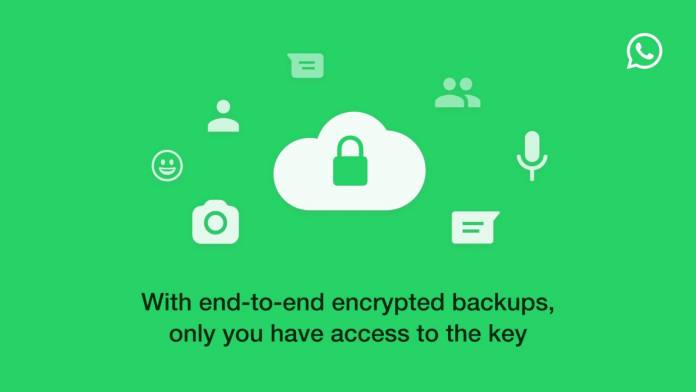
While WhatsApp messages have had end-to-end encryption since 2016, they only recently started testing bringing the same to the chat history backups. Now, it’s official as they have announced and will start rolling out encryption for your backups that are saved on cloud servers like Google Drive and iCloud. Users will be able to choose whether to use the encryption before they are backed up in the cloud and also whether to use a 64-digit key or set a password.
End-to-end encryption for messages is already a must-have for a lot of messaging app users but to have the backup encrypted as well is a pretty good bonus. This means that “neither WhatsApp nor the backup service provider” can access your backup. Only you will be able to do so. Well, if you remember the encryption key or the password that is. Your backup will be encrypted with a “unique, randomly generated encryption key” so only you will be able to access it.
Users will have two options on how to access it. First, you can manually store the 64-digit key. The problem though is that you will not be able to recover that backup if you lose the encryption key. The second way is to set up a password and in case you forget it, you will be able to reset it. So while the first option is more secure, you will have to make sure that you do not lose that 64-digit key. Another thing to remember is that you’ll only be able to create your encrypted backup from your primary device even if they have support now for multiple devices.
It’s worth noting that some reports have said that WhatsApp’s human moderators are able to review chats if you report a specific chat as violating the messaging platform’s rules. Facebook explained that this is so they will be able to get more context about the conversation. So while your messages and the backup are end-to-end encrypted, it’s not perfectly encrypted as we thought them to be. This has given users concerned with privacy something to think about if ever they want to report a conversation.
As for the end-to-end encrypted backups, they will be available for iOS and Android users in the coming weeks. We’ll probably hear more about this in the next few days as well.









